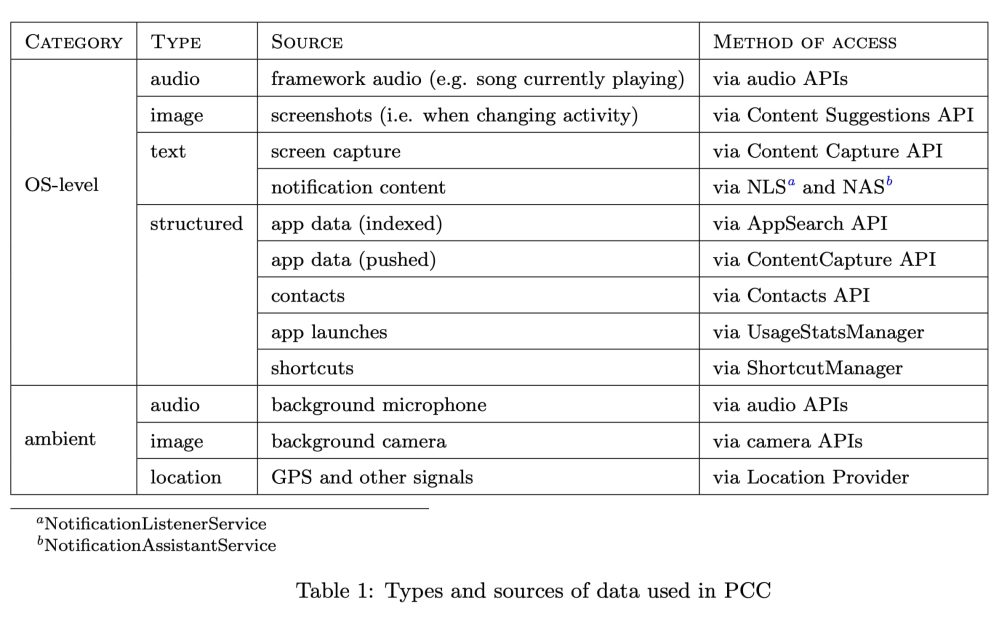
The Private Compute Core (PCC) was announced with Android 12 to let ML-backed features operate in a privacy-conscious manner independent of other parts of the OS, including third-party apps. Google recently published a technical whitepaper detailing the Private Compute Core Architecture.
“Backed by open-source code in the Android Framework,” the Private Compute Core is a “secure, isolated environment within [Android]” — specifically, a system-level, virtual sandbox — that can “host sophisticated ML features.”
It’s one of the technologies under Google’s “Protected Computing” toolkit, joining cloud enclaves, edge processing, or end-to-end encryption.
PCC collects ambient data like audio (from microphones), images (cameras), and location (GPS), as well as OS-level data:

The inferences from ambient and OS-level data are retained inside Android System Intelligence, within Private Compute Core. All communications to external servers is done via Private Compute Services (PCS) privacy-preserving open-source technologies.
Updated via the Play Store, PCS was recently open-sourced, and responsible for updating ML models with support for:
- Private Information Retrieval: Enables downloading slices of a dataset without revealing to the server which slice it downloaded.
- Federated compute: Enables privacy-preserving aggregate machine learning and analytics across many devices, without any raw data leaving the device.
- HTTP download: Enables access to static resources like updated ML models.
Meanwhile, Android System Intelligence (ASI) is what actually contains features like Now Playing (always-listening for music), Smart Reply (for notifications), Live Caption (on-device speech recognition for playing media), and Screen Attention (display remains on when you’re looking at it as determined by the front-facing camera).
The architecture whitepaper provides feature breakdowns for how data moves through the Private Compute Core:
Live Caption
Screen Attention
Author: Abner Li
Source: 9TO5Google






